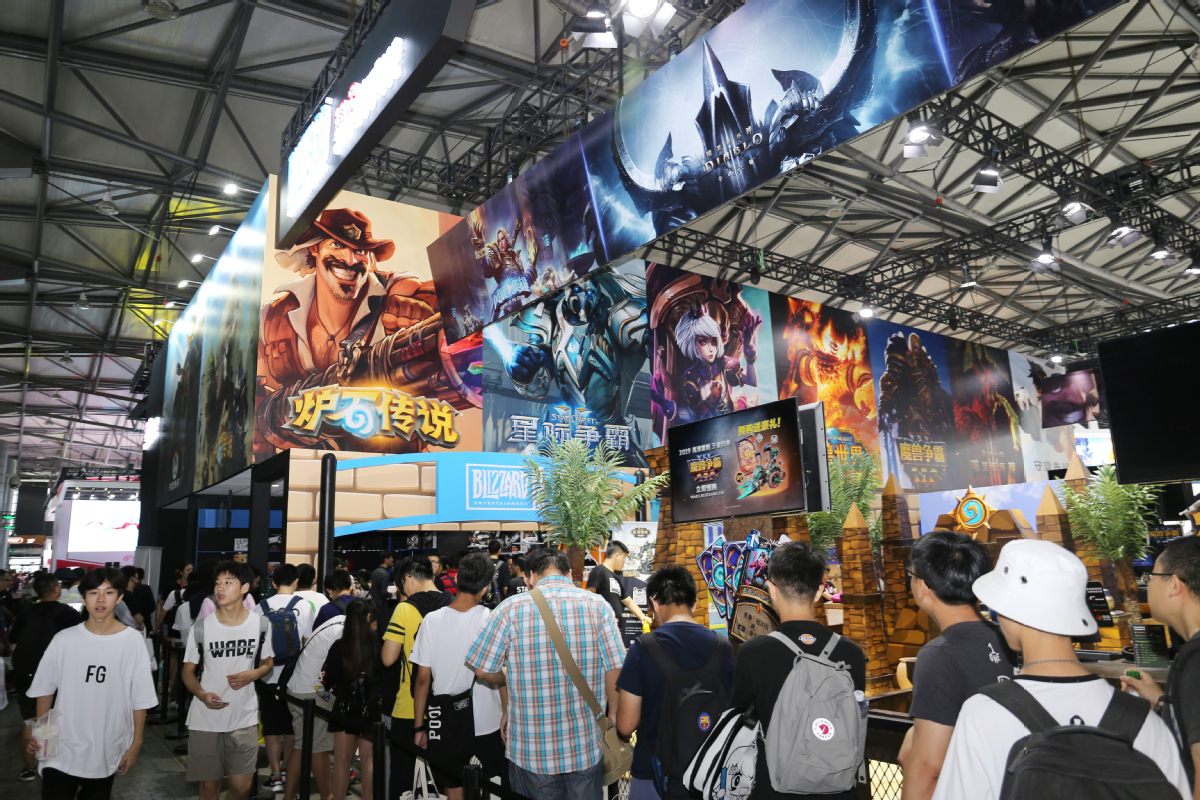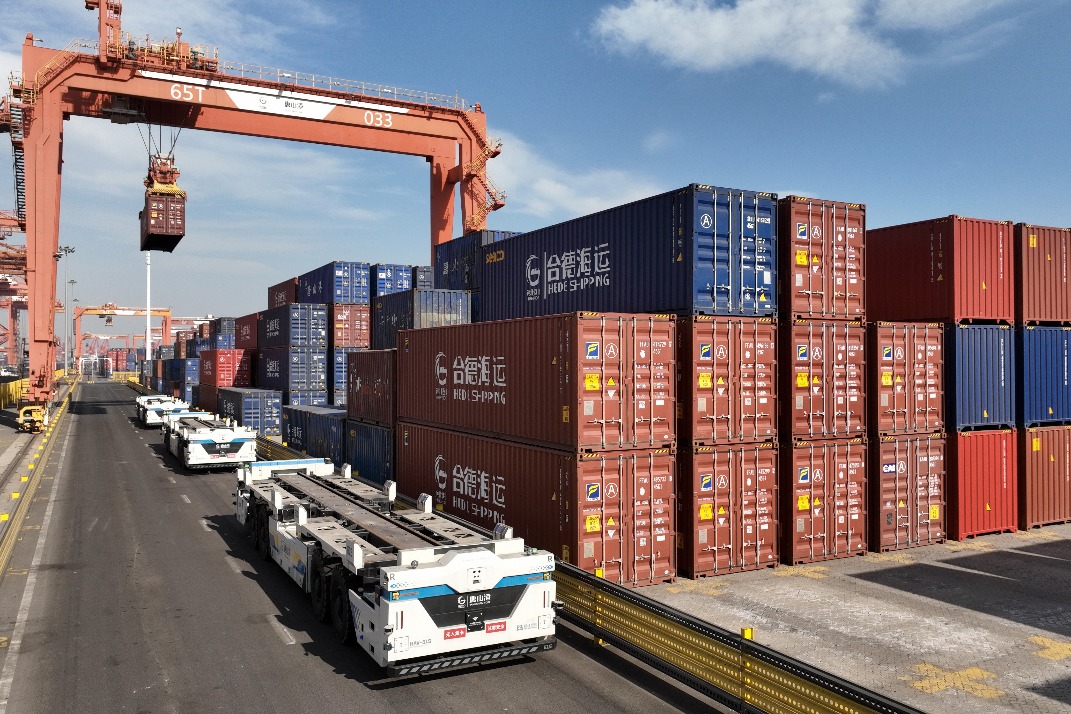Chinese games eye more play overseas


Self-developed products account for 30 percent of Top 100 in major foreign markets in 2022
Expansion is heating up for Chinese gaming companies seeking opportunities in overseas markets, given the competitive pressure in the domestic market and rising growth opportunities in both mature and emerging markets.
While the COVID-19 pandemic sent shockwaves throughout the global gaming market, Zhu Xiaoxiao, head for Moloco Greater China region, a US-based machine-learning company, believes a rising number of Chinese gaming companies will ramp up efforts to expand their overseas presence in the second half of this year.
"During the past three years, several gaming companies faced difficulties in terms of expanding their overseas business due to the pandemic," Zhu said. "With the optimized COVID-19 containment measures, we'll see more and more gaming companies compete in the global market …those actively embracing the changes will likely grasp the opportunities."
Zhu said she took an optimistic view of the huge growth potential of the global gaming market for the long run given its mature monetization and business models, the still-large consumer market and booming technologies such as artificial intelligence, which will help drive the development of the gaming sector.
Data from gaming industry consultancy Newzoo show that the global gaming market saw a year-on-year decline of over 4 percent for the first time last year since it began tracking global gaming market revenues.
China's gaming market also shrank for the first time in years in 2022. The market generated revenue of 265.88 billion yuan ($36.7 billion) with a 10.33 percent year-on-year decline amid a complicated and grim domestic and international situation, weakening market confidence and the COVID-19 pandemic, according to an industry report released during the China Game Industry Annual Conference in February.
Notably, while sales of homegrown Chinese games in the overseas market went down 3.7 percent year-on-year to a total of $17.35 billion last year, the rate was much lower than that of the domestic market, which was down 13.07 percent year-on-year to 222.38 billion yuan in 2022, according to the industry report.
Bruce Li, head of new business for Moloco Greater China region, said as the company has served a wide range of Chinese gaming companies seeking global expansion, it noticed that there is a growing focus on markets where Android maintained its position as the key mobile operating system, especially in markets such as Latin America, the Middle East and Southeast Asia.
"For developers who mainly focus on markets where Apple's iOS system serves as the main mobile operating system or mature markets such as Europe and the US, now they can shift their focus to tier-3 countries, or developing countries," Li said.
While Chinese gaming firms had a difficult time during the past few years amid the pandemic and economic downturn, Li expects to see an explosion of new titles in the overseas markets. "We believe the explosion may occur in the third or fourth quarters of 2023."
After years of development, Chinese gaming companies have become more competitive in the global market, as sales of homegrown Chinese games in overseas markets accounted for over 10 percent of total gaming sales in 2022.China's self-developed games made their name on the Top 100 mobile games in terms of earnings in markets such as Japan, South Korea, the United Kingdom and Germany last year, accounting for around 30 percent of the total Top 100 mobile game titles, data from Chinese gaming database Gamma Data showed.

According to Gamma Data, the US remains the largest overseas market for Chinese domestically developed mobile games, accounting for over 30 percent of the total foreign revenue of the sector in 2022. Other key international markets for China's self-developed mobile games include Japan, South Korea, the UK and Germany.
Notably, the US, Japan and South Korea accounted for 56.4 percent of Chinese homegrown mobile games in overseas markets in 2022.
Xu Fanke, an analyst at Gamma Data, said he is bullish about the future of Chinese gaming companies' going-global trend and expects to see more gaming firms expand their presence in overseas markets.
"Chinese products are expected to make the top mobile games list in more overseas markets and there are opportunities in both mature and emerging markets," Xu said.
According to Xu, huge growth potential exists in emerging regions such as the Middle East, Africa, Latin America and Southeast Asia. Figures from Gamma Data show that despite the downturn in the global gaming market, the Middle East and Africa, Latin America and Southeast Asia still saw a growth of 11.1 percent, 6.9 percent and 5.1 percent in their mobile games markets last year, respectively.
Meanwhile, Xu also warned of challenges faced by Chinese gaming firms in their global expansion, such as localization, changes in overseas laws and policies and problems in overseas channels, saying new problems have also popped up due to changes in the international environment and increased competition in overseas markets.
To better seize opportunities in offshore markets, Xu said localization remains key, and companies need to better cater to local users, build their own teams, develop self-owned information bases and better monitor the changes in foreign markets.
Today, China has become the world's most developed mobile market and Chinese mobile publishers are among the top-ranked in the world.
The country overtook the US for the first time to dominate the list of the Top 52 app publishers around the globe, with 17 domestic companies earning places on the annual list released last year by data.ai, a US-based mobile analytics company.
China's top gaming and social media operator Tencent and Chinese leading gaming outfit NetEase retained the top two spots in data.ai's Top 52 Publishers list for the fifth consecutive year last year.
NetEase Games told China Daily that its game users have covered over 200 countries and regions, including 140 that have joined the Belt and Road Initiative.
During the past three years, Net-Ease has invested over 35 billion yuan in R&D, and NetEase Games has gained over 10,000 game developers and nearly 20 game studios around the globe.
NetEase Games said its current income from overseas markets accounts for over 10 percent of its revenue, and it aims to further expand foreign business with 40 to 50 percent of revenue coming from overseas markets.
"According to our observation, Japan and the US are nearly saturated mobile gaming markets in terms of the number of mobile game players," the company said. "Facing stiffer competition, we need to offer more high-quality products and improved services to gain more support from our users."




































